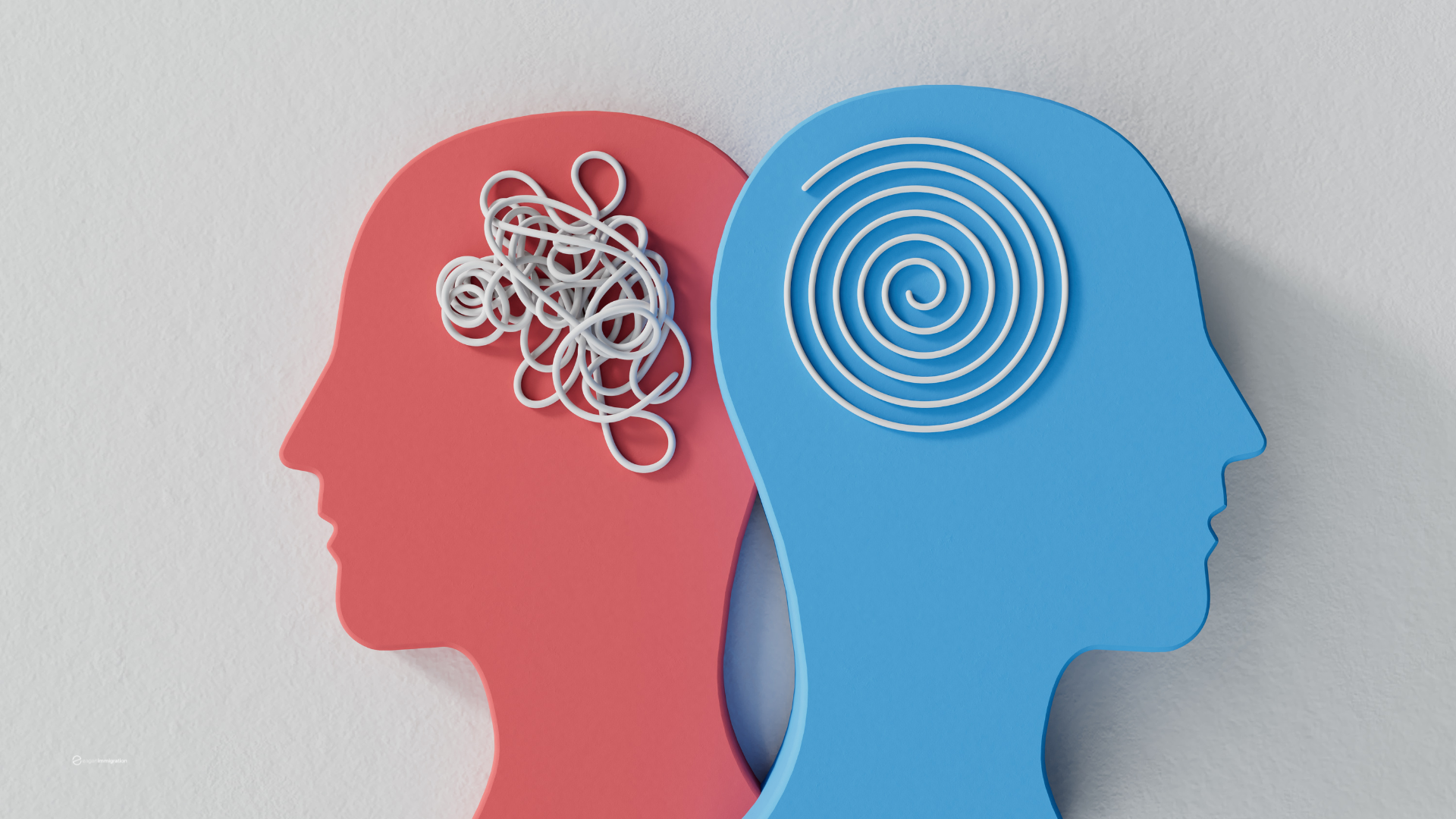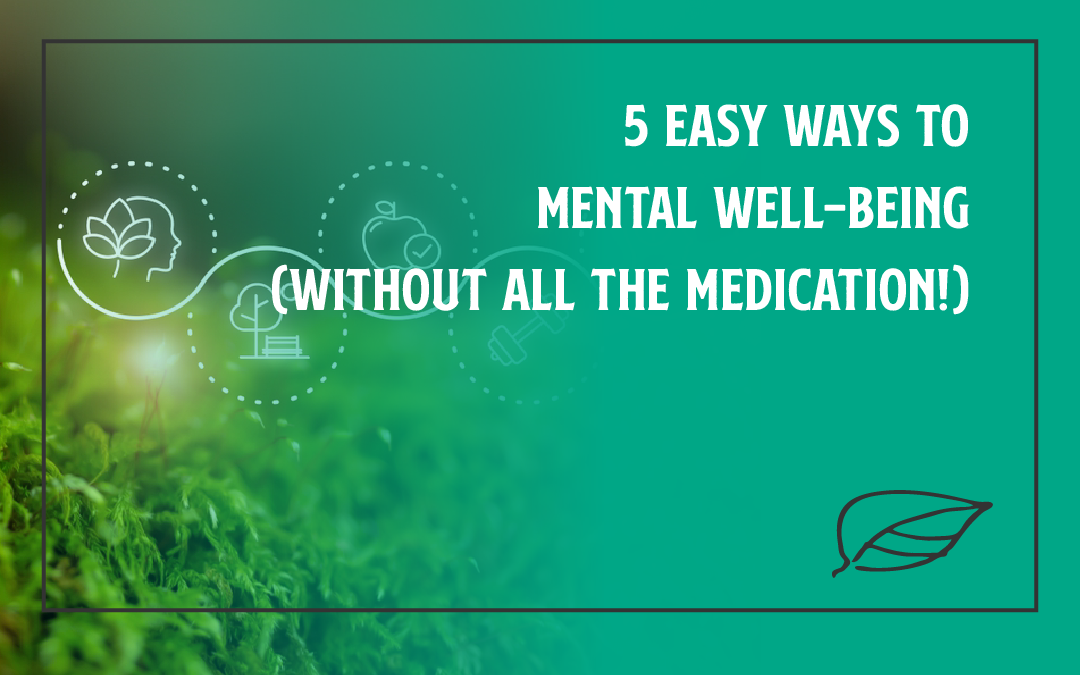It’s no surprise mental health is a popular topic; there’s a lot to discuss. To be fair, the headline says “5 easy ways,” but within those “5 easy ways” is a host of strategies that’ll pave the way toward a happier you (without medication!).
Happier lives, less stress—that’s what we’re all striving for. It’s a common goal. But with so much information out there, it can be tough to know where to start. Feeling down? Need a boost? Is your mental health less than stellar? There’s help available. This guide’s for you, at any stage of your journey.
This is what you’ll find:
- 10 Simple Strategies to Improve Your Mental Well-being
- Incorporating These Strategies into Your Daily Life
- The Impact of Mental Well-being on Overall Health
- Creating a Supportive Environment
- The Role of Professional Support
- Conclusion
10 Simple Strategies to Improve Your Mental Well-being
Let’s dive into some practical ways you can start enhancing your mental health today. Implementing these tips is a cinch, and the results? A noticeable improvement in your mood.
1. Practice Mindfulness
Mindfulness is all about being present in the moment. Stress and anxiety? It’s really handy. Try setting aside 5-10 minutes each day to sit quietly and focus on your breath. Notice your thoughts without judgment and gently bring your attention back to your breathing when your mind wanders.
2. Get Moving
Exercise isn’t just good for your body – it’s fantastic for your mind too. Working out regularly really helps you out. You’ll find yourself happier, less tense, and sleeping more restfully. This is because physical activity releases endorphins that have mood-boosting and relaxing effects, and it regulates your body’s natural sleep-wake cycle. What kinds of things do I do for fun? It depends on my mood; sometimes I’ll go for a hike, sometimes I’ll curl up with a good book. Consider going for a stroll, taking a dance lesson, or participating in a sport. It doesn’t have to be anything strenuous. Aim for at least 30 minutes of moderate exercise most days of the week.
3. Connect with Others
Human connection is crucial for mental well-being. Make time to reach out to friends and family regularly. Schedule coffee dates, join a club, or volunteer in your community. Strong relationships offer a safety net during hard times; they boost happiness too.
4. Prioritize Sleep
Good sleep is essential for mental health. Aim for 7-9 hours of quality sleep each night. Wind down before bed. Avoid screens to help you relax. Keep your bedroom dark and cool for better sleep. Can’t sleep? Chat with your doctor; they might have some ideas.
5. Practice Gratitude
Focusing on the good things in life can significantly improve your mental well-being. Try keeping a gratitude journal. Make a daily habit of listing three things you’re grateful for. They can be big or small – from a delicious meal to a kind gesture from a friend.
6. Learn Something New
Challenging your brain with new experiences can boost your mood and self-esteem. Spice up your life! Take up a new hobby. Maybe learn a language or take a class. Something you’ll enjoy. You’ll feel great after accomplishing something – it really helps your mental health.
7. Limit Social Media
While social media can help us stay connected, too much can negatively impact mental health. Limit your social media usage. Try designating specific times for checking your accounts and consider a ‘digital detox’ day each week.
8. Practice Self-Compassion
We’re often our own harshest critics. Self-care isn’t selfish; it’s essential. Showing yourself understanding and empathy directly impacts your mental wellness. Neglecting your emotional needs is like ignoring a physical injury—it won’t heal on its own. When you make a mistake or face a setback, talk to yourself as you would a good friend – with empathy and encouragement.
9. Eat a Balanced Diet
What you eat can affect how you feel. Eating plenty of fruits, vegetables, whole grains, and lean meats can help you feel better mentally. Try to limit processed foods, sugar, and alcohol. And don’t forget to stay hydrated – dehydration can affect mood and energy levels.
10. Seek Professional Help When Needed
Sometimes, we need extra support to maintain our mental well-being. Want a hand? Talk to a therapist. Your needs? This place has everything you require for success; the right tools and approaches are all here. Start now! Don’t wait. Asking for help shows you’re strong, not weak.
Incorporating These Strategies into Your Daily Life
Now that we’ve covered these strategies, you might be wondering how to put them into practice. Start small – pick one or two that resonate with you and try to incorporate them into your routine. As these become habits, you can gradually add more.
Improving your mental well-being? Think marathon, not sprint. Don’t be too hard on yourself; enjoy those little wins! Some days will be easier than others, and that’s okay. Progress happens gradually. Just keep putting one foot in front of the other.
It’s also important to note that what works for one person might not work for another. Feel free to adapt these strategies to fit your lifestyle and preferences. Figure out what helps you feel your best mentally.
The Impact of Mental Well-being on Overall Health
Your mental well-being doesn’t exist in isolation – it’s closely tied to your physical health. You’ll notice improvements in many areas when you make your mental health a priority. For example, stronger relationships, increased productivity at work, and more energy to enjoy hobbies. Sleeping soundly, feeling energized, and connecting deeply with others are all potential outcomes. Even your body’s defenses against illness might improve.
Ignoring your mental health can make you physically sick. Stress can cause all sorts of health problems; for instance, it’s been connected to heart disease and digestive issues. A healthy mind contributes to a healthy you; take care of it!
Creating a Supportive Environment
Your environment plays a big role in your mental well-being. Look around your house and where you work. So, these improve mental well-being, correct? It makes sense. Or not? Positive change starts with us. Time to get creative; how can we improve this? This might include decluttering, adding plants, or creating a dedicated relaxation space.
Surround yourself with folks who have your back—it makes a big difference. Your mental health thrives when you’re around those who lift you higher and applaud your efforts. Positive relationships? Absolutely vital. Everything from our happiness to our achievements is touched by their influence. If certain relationships are draining or negative, it might be time to set some boundaries or reevaluate those connections.
The Role of Professional Support
While self-help strategies are valuable, sometimes professional support is necessary. Therapists can help you work through a bunch of different mental health issues. Dealing with difficult emotions? Talking openly and honestly about your feelings is easier when you have support. Facing hard times? These people can teach you practical strategies to deal with difficult emotions and life’s challenges; techniques that help you build emotional strength. It’s a chance to process things at your own pace.
Professional help is available; several different types of help are out there. Therapists, counselors, psychologists—they’re all there to help. And psychiatrists, too. Your primary care doctor can often provide referrals, or you can search for mental health professionals in your area online.

Conclusion
Prioritizing your mental health is like making a deposit in a happiness bank account; the returns are invaluable. Think of this as planting a seed – you’ll reap a bountiful harvest. Better mental health is within reach if you start using these strategies every day. Remember, it’s okay to have ups and downs – that’s part of being human. Keep improving your mental health; you deserve to celebrate every step of the way!
It’s your mental health journey, and it’s completely individual. No one else’s will be exactly like it. It’s okay to ask for help; we all need it sometimes. Chase your dreams with passion, but also remember to practice self-care. This is a marathon, not a sprint; pacing yourself is important. Progress takes time. Life improves when your mind is strong. Invest the time—it’s worth it. Take care of yourself; your happiness matters.

